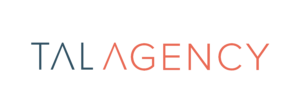SEO has always been about change. But 2025 feels different.
The pace of transformation has picked up. Google’s Search Generative Experience (SGE) is rolling out globally, AI is reshaping how content gets produced, and businesses are putting agencies under more pressure than ever to prove return on investment.
For agencies, that means ‘business as usual’ (a phrase I personally can’t stand) won’t cut it. The service model is shifting, the skills required are evolving, and the expectations from clients are higher. Much higher. But what changes are we seeing as we get closer to a new year? And how will these impact day-to-day agency life?
From keywords to conversations
For years, SEO was framed around a list of keywords: agree the phrases, optimise the pages, build some links, and watch the rankings climb. Fast forward to now, and that linear model is breaking down and those who don’t adapt will be left behind.
With SGE and other AI-powered search features, people aren’t just typing ‘technical SEO audit tips’ and clicking a result. They’re asking broader, conversational questions like ‘how can I improve my site’s SEO performance?’ or ‘which agency can help with structured data and content strategy?’ The opportunity for agencies is no longer just about ranking number one, but about ensuring their expertise and services are visible inside those summaries.
That shift requires a different approach to content. It’s not enough to produce service pages or blog posts ‘optimised’ with keywords. Agencies now need to structure content so search engines can pull out answers. That means FAQs, case studies, clear service descriptions, and client-focused guidance. The winners will be the agencies that anticipate the questions that clients are asking and make those answers easy for both humans and machines to find.
SEO and brand are no longer separate
SEO, for some people, used to be treated as a bolt-on; a set of technical fixes here, some content optimisation there, with little to no connection to the wider brand strategy. That division is disappearing fast – it shouldn’t have existed in the first place, but was often driven by budget constraints.
In 2025, clients want more than traffic. They want results that convert because they reflect their brand positioning and speak directly to their audience. Agencies can’t just implement technical changes; they need to (at the very least) understand the client’s messaging, competitive landscape, and customer journey.
The best agencies are blending SEO with content strategy, creative campaigns, and thought-leadership positioning. If an agency can’t explain how search supports the bigger picture of a client’s growth, they’ll struggle to stay relevant.
ROI is front and centre
Monthly reports filled with keyword charts and traffic graphs don’t impress anyone anymore.
Clients want a clear line between SEO activity and commercial outcomes. Did organic leads increase? Did informational traffic help to generate measurable conversions? How many opportunities in the sales pipeline can be traced back to organic search? Agencies need to be able to answer these questions convincingly.
That requires deeper integration with analytics and CRM systems, and a disciplined approach to prioritisation. If a task doesn’t directly support visibility, traffic, or conversions, it shouldn’t be on the roadmap. The agencies that thrive will focus on the KPIs that actually matter to client growth.
AI is raising expectations
AI is often framed as a threat to SEO, but in reality, it’s a tool that agencies can’t afford to ignore. It’s speeding up keyword research, structuring audits, and helping generate content briefs. But it hasn’t replaced human strategy or creativity – and it shouldn’t.
What it has done is raise expectations. Research that used to take a week can now be done in a day, so clients will start to expect faster delivery. At the same time, they’ll expect deeper, more actionable insight. Agencies need to use AI to handle repetitive tasks while freeing up time for the work that drives measurable results.
The danger is over-reliance on automation, which can produce generic output with little value. The agencies that succeed will use AI as an accelerator, not a substitute.
Retainers are shifting
Traditional retainers are under pressure and clients are asking for more flexibility. They want to invest more heavily in SEO during a website migration, then shift focus to content or paid campaigns when that’s what will drive growth.
Agencies are responding with hybrid retainers. These give clients a core level of SEO support each month, but allow resources to flex across different channels or activities as priorities change. It demands trust and collaboration, but reflects how modern marketing works: fluid, responsive, and outcome-driven.
This shift also opens the door to value-based pricing, where agencies are rewarded for real business outcomes, like leads or sales, rather than hours spent. It aligns client and agency incentives and encourages smarter, more strategic work.
Sustainability and client experience
Clients are increasingly looking for agencies that operate transparently and ethically. That means clear guidelines for what constitutes ethical SEO, keeping long-term success in mind rather than chasing short-term gains. Regular audits, monitoring performance, and openly sharing results are becoming expected standards.
At the same time, personalisation is more important than ever. Agencies that understand client behaviour, map out touchpoints, and tailor strategies to individual needs will stand out. Feedback loops, custom journeys, and active collaboration are now key to delivering meaningful results.
What it means for SEO agencies
The future of SEO agencies isn’t about chasing keywords or ticking technical boxes. It’s about operating with clarity, demonstrating adaptability, driving efficiency, and maximising commercial impact.
For clients, the takeaway is simple: don’t settle for an agency that just “does SEO.” Look for one that understands how search connects to your brand, your customers, and your revenue. The agencies that can join those dots are the ones that will help you grow in 2025 and beyond.


We’d love to chat
The best ideas start with a good old conversation. Let’s have a chat about how we can help you.
Complete the form and one of the directors will be in touch.
Or just pick up the phone and call us, we’re on 03334049888.














